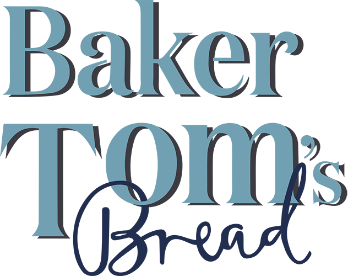Here at Baker Tom’s we are proud to produce a wide range of organic breads, as certified by the Soil Association. The word ‘organic’ is thrown around a lot, but what really makes our bread organic, and why is it so important to us?
The Soil Association certification
For a product to be certified as organic, the production process must meet a strict set of legally defined standards. As a principle, organic produce should follow processes that do not harm the environment, human health, plant, or animal health. In other words, organic produce aims to work within, rather than against, natural systems and cycles. Organic products are a more sustainable choice because they prohibit the use of synthetic fertilisers and pesticides, which greatly reduces the risk of pollution associated with food production. As the run off from farms is far less polluted, the surrounding land is able to encourage higher levels of biodiversity and in turn a more diverse ecosystem.
What makes Baker Tom’s organic?
We use regenerative flour sourced from a responsible milling company called Shipton Mill, who have been working with farmers prioritising biodiversity and soil-friendly farming methods since 1979. As a company, Shipton Mill value diversity and natural resilience over the size and speed of their yield, and we value working with suppliers who are making a positive impact in the world. As part of their mission, Shipton Mill have been working hard to encourage the preservation of rare and old varieties of wheat. Preserving rare and old varieties of wheat is great for biodiversity, which is vital for helping us fight and adapt to climate change. On top of this, Shipton Mill is 100% powered by renewable energy sources and convert the excess heat from their milling processes into office and hot water heating.
What is regenerative flour?
Regenerative flour refers to flour made from grains grown using regenerative agriculture, a method that aims to improve the health of the soil and the environment. In fact, food products with an organic label always mean they were produced using regenerative methods: in the words of the Soil Association, organic agriculture “is so closely aligned with the best of regenerative that they’re virtually synonymous”.
Regenerative agriculture falls under the umbrella term of ‘agroecology’, which is the most sustainable method of food cultivation. Using regenerative methods ensures that the land, soil, water, nutrients, and natural assets are given the time to regenerate themselves. Prioritising the health of the soil has numerous benefits, because healthy soils help to retain water, support biodiversity, sequester carbon, and most importantly produce our food crops.
Why choose organic?
The most sustainable bread choice you can make is choosing bread made with local, organic flour because it avoids the chemical fertilisers used in producing commercial wheat. The great thing about organic bread is its not only good for the planet, its also good for you! A study by the Organic Centre found that, on average, organic breads contain three times as many nutrient-dense ingredients than conventional breads.
Now you know that organic bread is the healthiest and most sustainable choice, why not try some products from our tasty organic range? From a tasty white loaf to a hearty seeded sourdough, our organic range has something for everyone.

